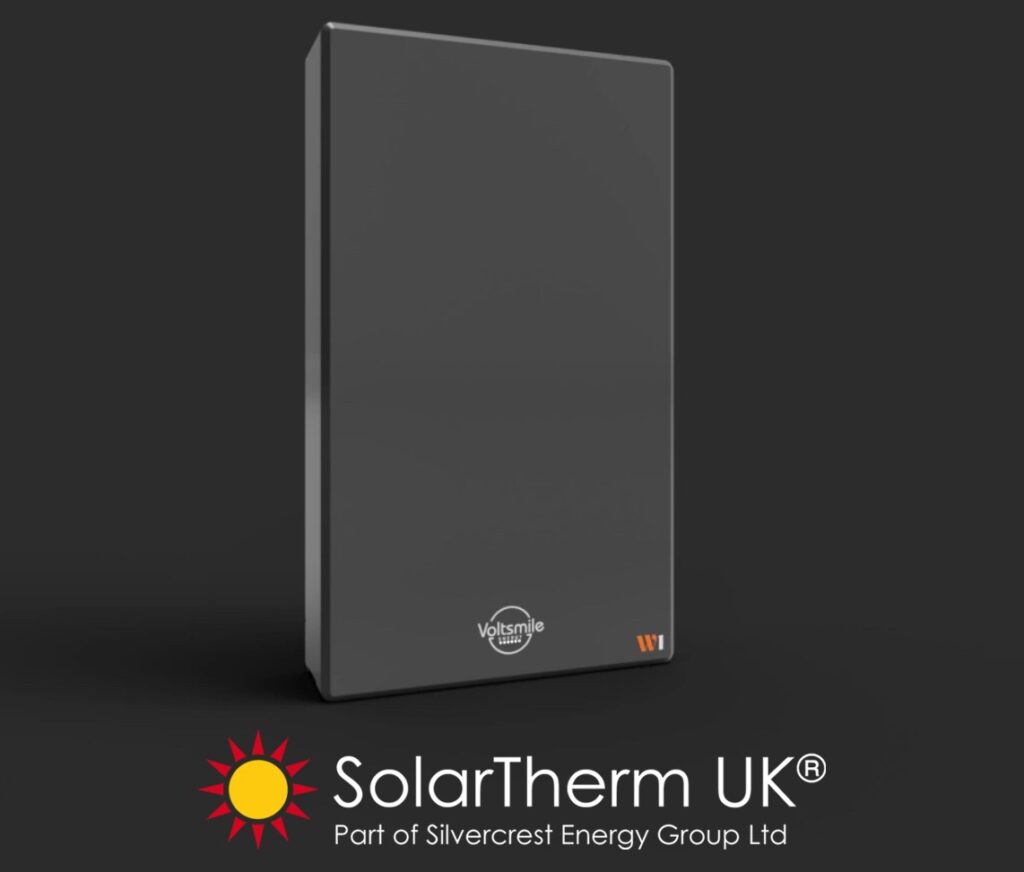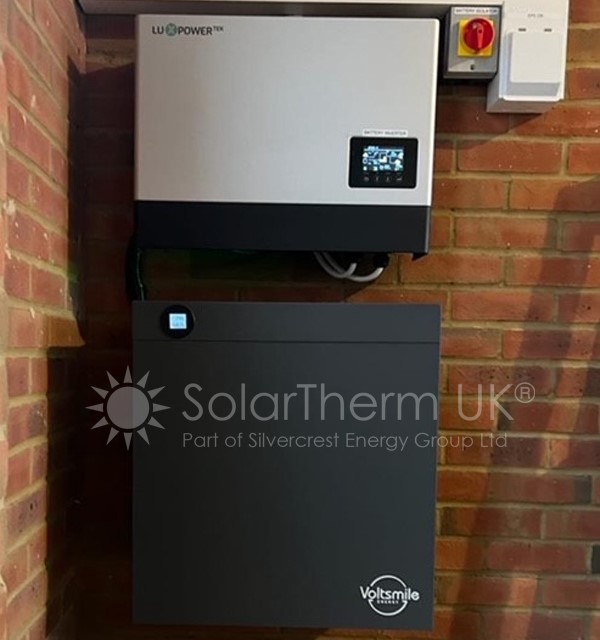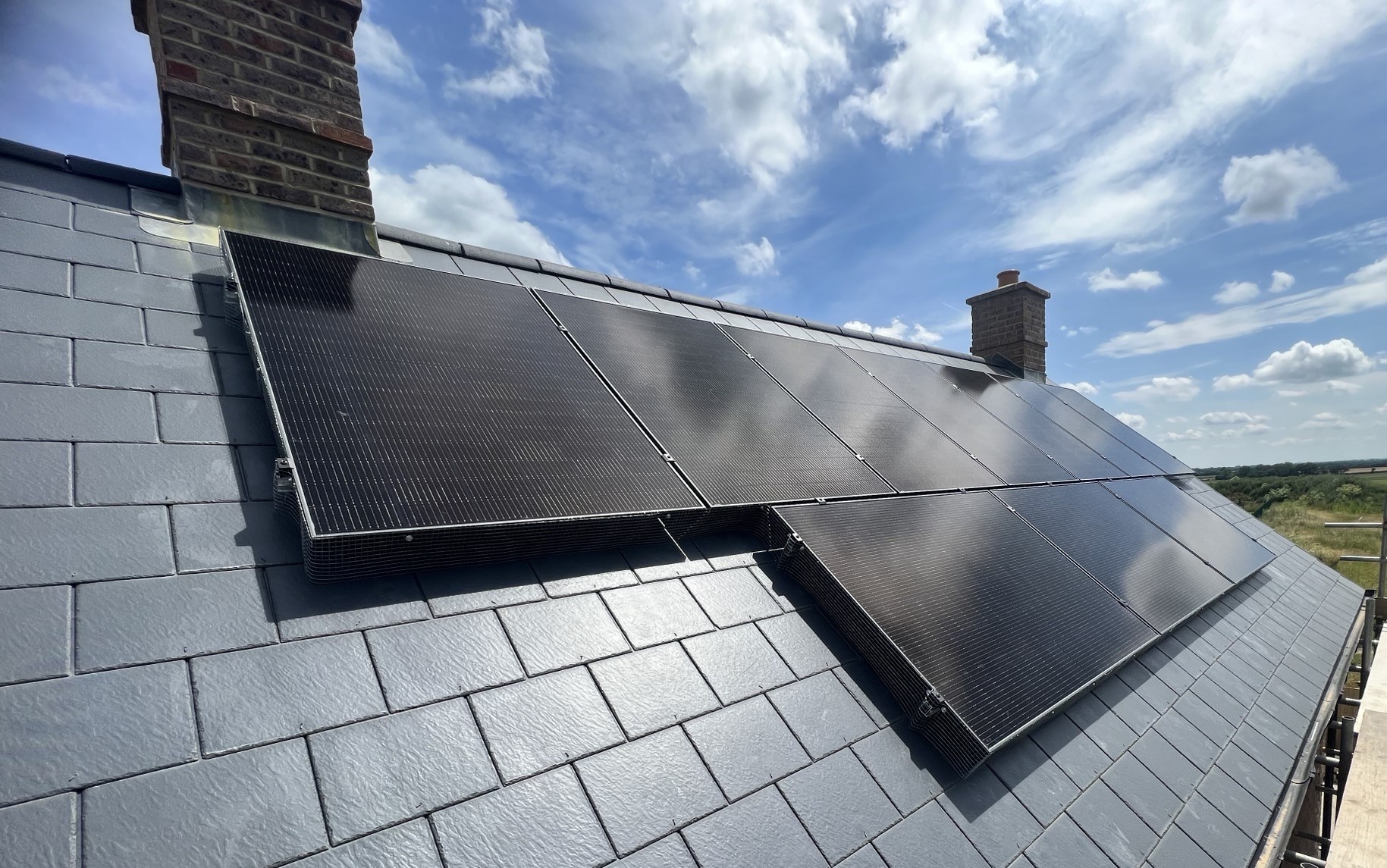There have been many changes in the regulations, opinions and installation do’s and don’ts since SolarTherm UK installed their first Solar PV system in 2010.
Like most new technologies, there has been a lot of learning on the job, being told one thing by the higher echelons of trade bodies and their experts, followed six months later by something completely different. The last five years or so has seen very few batteries located anywhere but in the loft space of a residential property, but now that’s a grey area…
If you check statistics online, it’s claimed there are as many as 10,000 home batteries now installed in properties. It would be tough to say exactly where in the home these are all installed, but our estimate would be that 90% are mounted in the loft.
At SolarTherm UK we installed our first battery in 2011 in an off-grid setting, and have since installed around 6,200 battery modules, which is around 4,300 complete battery systems.
We have thankfully never seen any instances of overheating. So, we would say the chances of battery overheating, implosion or fires is slim to none. However, that hasn’t stopped the recent considerations of safety, and the question being asked; “should we still be placing batteries in a loft space?”
Well, our answer to this is yes – when there is no other location available and appropriate steps are followed, then at the time of writing, it is both permittable and acceptable.
Of course, when using high-quality equipment like the Voltsmile home energy system there should be no concern regardless. But in most cases using Voltsmile’s W1 10.24kw outdoor wall mounted unit would be our preference, and both are installed to current regulations.

It surprises people that solar batteries can be installed in a loft if you meet specific safety requirements. These include having a fire alarm, smoke alarm, proper lighting, and an easily accessible entrance. Full details are given in Section 11, Table 11.1 of the IET Code of Practice of Electrical Energy Storage Systems, 2nd Edition. But then you have the PAS 63100 recommendation about batteries not being in lofts, so confusion once again and this document really doesn’t make much sense either.
The argument about a battery falling from the loft in the event of a fire is a little bizarre as they are securely fixed and are likely to sit in place, fire or no fire, for at least the time it takes for the structure to become unsafe itself. And if a potential falling battery was an issue, then how about a hot water cylinder or gravity fed water tank that can weigh nearly 200kg?
MCS, who govern our solar industry, deem the latest versions of the IET Code of Practice to be the minimum standard.
We are sure things will change again in the future, but for now, companies like ours, can draw on our years of experience and adapt to change. Of course, other factors should then be taken into consideration with regards to placing the batteries outside. Batteries have an operating temperature of between -10 and +55 degrees Celsius. Outside of these ranges the Battery Management Systems will have the battery cease operation. There is a large safety margin around these numbers and the batteries would safely operate in much lower and much higher temperatures than the manufacturer has deemed “safe operating temperatures”. For example, installations in Scotland may have to worry more about the batteries remaining above the -10 degrees limit than they do about them exceeding the +55 degrees limit. But for the areas SolarTherm UK cover, which is predominately London, the Southeast and East Anglian regions, and bearing in mind an average loft space will not often hit over +55 degrees until there is an ambient air temperature of +35 degrees, this would be a very rare occurrence. These conditions are also considered when we plan or survey a site for battery installation.
In conclusion, it’s the same story. If you purchase the correct equipment, have it designed and installed by a professional that has the added benefit of a wealth of experience in battery installations, then problems are very unlikely to occur.
For more information on home or commercial battery storage systems, with or without solar panels, please do get in touch with our friendly team. Alternatively, if you are looking for a quote for solar panels or battery storage systems, fill in our simple online form.





